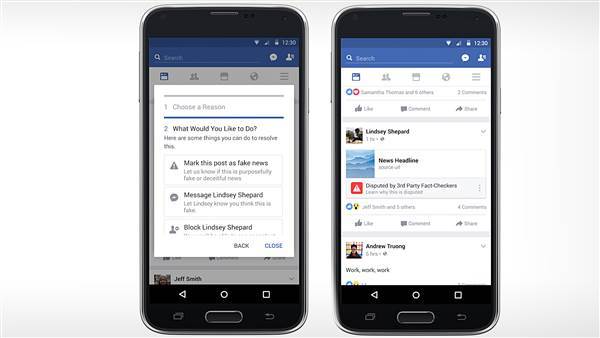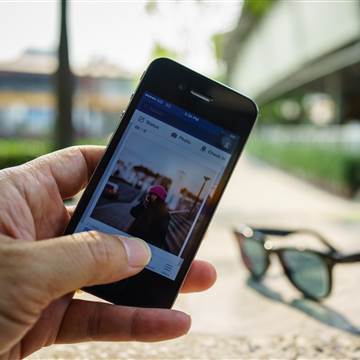After weeks of user outcry over the issue of fake news on the site, Facebook has finally come up with ways to strip its News Feed of the controversial hoax stories that led to accusations that the social giant had swayed voters in the presidential election.
But don’t expect Mark Zuckerberg to do all the work — the new initiative puts power directly in the hands of users, which for now, will be a small test group.
The site rolled out a suite of new tools Thursday that will allow users to flag anything they consider “disputed.” The feature will be gradually rolled out to more people as Facebook learns more about what works, a company representative said.
Flagged stories will then be reviewed by Facebook researchers and sent on to third-party fact-checking organizations for further verification — or marked as fake.


“We believe in giving people a voice and that we cannot become arbiters of truth ourselves, so we’re approaching this problem carefully,” Adam Mosseri, Facebook’s vice president of News Feed, said in a blog post.
Related: Truth and Transparency Take Center Stage at Facebook
“We’ve focused our efforts on the worst of the worst, on the clear hoaxes spread by spammers for their own gain, and on engaging both our community and third party organizations,” he said.


Facebook’s secret sauce — the algorithm that decides what gets the most prominence in News Feed — will also be tweaked.
If a story is being read but not shared, Mosseri said that may be a sign it’s misleading.
“We’re going to test incorporating this signal into ranking, specifically for articles that are outliers, where people who read the article are significantly less likely to share it,” he said.
Fact Checking
The next step in Facebook’s plan to rid the site of fake news involves sending flagged stories to third-party fact-checking organizations, which include Snopes, Politifact, and Factcheck.org.
A group of Facebook researchers will initially have the responsibility of sifting through flagged stories and determining which ones to send to the fact-checking organizations. If it’s determined to be fake, the story will be flagged as disputed and include a link explaining why.
These stories can still be shared, but you’ll be warned before you do and they’ll be more likely to appear lower in News Feed. These stories also won’t be able to be promoted or turned into advertisements.
Fake news is making some creators a fortune, as a recent NBC News investigation uncovered.
While Facebook hopes these tools will be helpful, they’re also aiming to hit purveyors of fake news where it hurts — the pocketbook.
Related: Facebook and Google Crack Down on Fake News Advertising
“Spammers make money by masquerading as well-known news organizations, and posting hoaxes that get people to visit to their sites, which are often mostly ads,” Mosseri said.
“On the buying side we’ve eliminated the ability to spoof domains, which will reduce the prevalence of sites that pretend to be real publications. On the publisher side, we are analyzing publisher sites to detect where policy enforcement actions might be necessary,” he said.
Fake News Fiasco
The new tools come a little more than one month after the fake news fiasco reached a boiling point post-election.
Days after Donald Trump was elected president, Zuckerberg said it was “pretty crazy” to think fake news could have influenced the election and warned Facebook “must be extremely cautious about becoming arbiters of truth.”
Less than two weeks later, with the issue still simmering, Zuckerberg shared a more detailed account of projects he said were already underway to thwart the spread of misinformation.
The team at Facebook has made it clear they don’t want censorship on the site and that these new tools are just part of the evolving process of combating misinformation. A Facebook representative said users can expect more testing and continued transparency on what Facebook is doing to tackle the problem.





